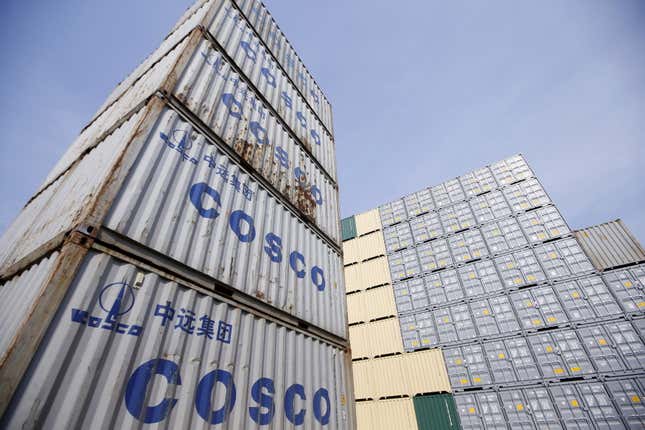
Italy formally pulled out of a flagship Chinese trade and infrastructure project in December. But is it as much of a blow to Beijing’s geopolitical ambitions, and a marker of cooler Italy-China ties, as headlines may suggest?
Even as Rome has withdrawn from Chinese leader Xi Jinping’s transcontinental Belt and Road Initiative (BRI), Chinese industry views the Italian commercial arena as one ripe with opportunity. And indeed, even Italian prime minister Giorgia Meloni had earlier acknowledged that good relations are possible with China without the BRI.
Case in point: China’s COSCO last week purchased Italian integrated logistics company Trasgo. The acquisition was made via COSCOS, a joint venture between the Chinese state-owned shipping giant and Italy’s Fratelli Cosulich Group.
“It’s the latest demonstration that Beijing’s companies keep investing – and seeking control – in Italy, even though Rome dropped out of China’s flagship Belt and Road Initiative in December,” writes Decode39, an Italy-based geopolitical news outlet.
The Belt and Road Initiative, without the label
COSCO sees the takeover of Trasgo — which it called “a leading global player in integrated logistics” — as a key step in its push to extend its operations throughout Europe.
“This acquisition marks a new level and fast lane for the construction of COSCO’s digital supply chain in Italy and Europe,” COSCO said in a statement (link in Chinese). “This successful acquisition is an important measure for COSCO Shipping (Europe) to implement the group’s digital supply chain development strategy.”
By buying Trasgo, COSCO gets a foothold in Italy’s warehousing sector. Trasgo owns 14 warehouses across Italy, totaling some 270,000 square meters of warehousing space.
The warehouse sector goes beyond providing a place to store goods. Chinese policy makers see overseas warehouses as strategic investments that can give Chinese companies a leg up in boosting foreign trade and smoothing out global supply chains. State media refer to China’s network of global warehouses as “new foreign trade infrastructure” (link in Chinese) that are key to promoting connections within the BRI.
Put another way, Rome may have left the BRI, but China continues to pursue BRI objectives through investments in Italy.
Besides warehouses, Trasgo also provides services like cargo handling, transportation, and customs operations. In addition, the four-decade old company specializes in providing integrated solutions for a number of industries, including automotive, industrials, and high-tech products — all areas in which Beijing seeks greater influence and market share worldwide.
Not just ports
For Beijing, wielding influence over logistics translates to additional leverage over global trade.
While Chinese investments in and acquisitions of ports worldwide garner the most attention, China’s whole-of-supply-chain approach to industrial competition means that ports are but one important node in the global logistics network.
Relatively smaller investments — like Cosco’s acquisition of Trasgo — ensure that China can grow its footprint not just in major infrastructure like ports, but also the services and capabilities that form the capillaries of international trade.